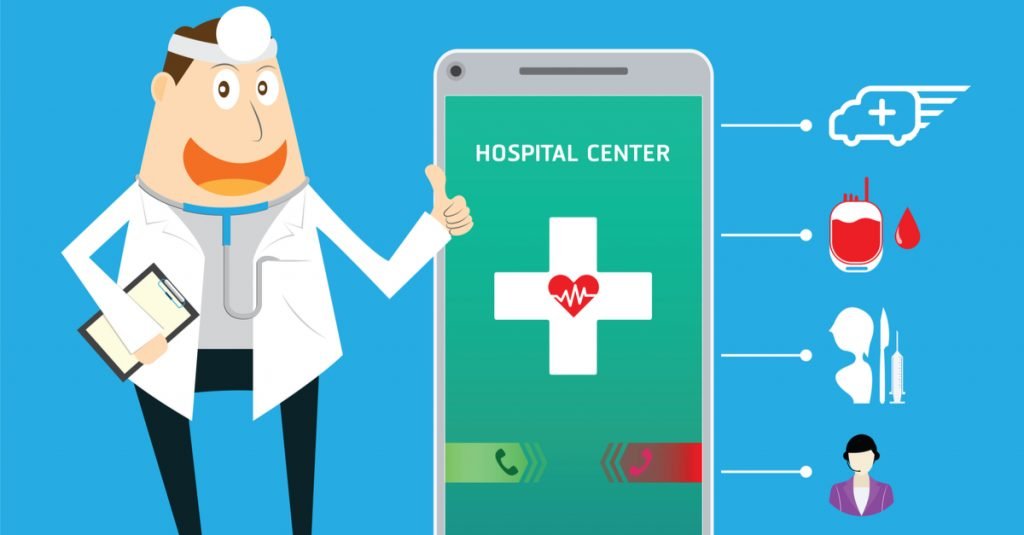Introduction
In today’s fast-paced and ever-changing world, the healthcare business has various obstacles in providing efficient and effective services to patients. The emergence of healthcare call centers as an integral part of the healthcare system is one answer to this problem. These contact centers provide a vital link between healthcare providers and patients, providing a variety of services that improve communication, patient care, and healthcare operations. In this blog, we will look at the critical role that healthcare contact centers play in the medical business, concentrating on their importance and the different benefits they provide.

Enhancing Patient Communication
Healthcare call centers are the primary point of contact for patients seeking medical assistance, information, or appointment booking. They serve as a link between healthcare providers and patients, providing a simple and accessible mode of communication. Call centers boost patient satisfaction while reducing the load on healthcare facilities, resulting in more streamlined operations.
24/7 Availability
Medical emergencies can occur at any time, and having access to fast medical care can be the difference between life and death. Healthcare contact centers are normally open 24 hours a day, seven days a week, to provide patients with help and information. Patients may rely on these contact centers for prompt and dependable assistance, ensuring they receive proper care whenever needed, whether it’s a sudden illness, medication-related issue, or post-treatment counseling.
Appointment Management and Scheduling
Booking visits with healthcare specialists can be time-consuming, with significant wait periods and the possibility of miscommunication. Healthcare contact centers provide a streamlined appointment management system, allowing patients to arrange appointments with ease. Call centers aim to reduce patient wait times, improve overall patient experience, and maximize the utilization of healthcare resources by optimizing the scheduling process.
Remote Patient Monitoring and Follow-ups
Healthcare call centers play an important role in enabling remote patient monitoring and follow-ups. Call center agents can monitor a patient’s health state, adherence to treatment programs, and prescription schedules through routine calls and check-ins. This proactive strategy aids in recognizing potential health issues early on, minimizing hospital readmissions, and promoting better patient outcomes.
Efficient Triage and Medical Advice
Medical triage is frequently performed by trained call center workers, who assist patients in determining the severity of their symptoms and guiding them to the right level of care. This procedure guarantees that patients with urgent medical requirements receive rapid attention, while those with non-emergency problems receive appropriate health-management advice. Healthcare contact centers contribute to a more efficient and optimized healthcare system by providing correct medical advice.
Handling Non-Emergency Medical Inquiries
Handling non-emergency medical inquiries through call centers can greatly lessen the pressure on healthcare facilities. Patients seeking general information regarding health issues, medication use, or healthcare facilities can have their questions addressed without having to make an in-person visit. This frees up significant time and resources for healthcare staff, allowing them to focus on critical situations and enhancing overall patient care.
Healthcare Hotlines and Public Health Campaigns
During public health crises or disease outbreaks, healthcare call centers play a critical role in communicating critical information to the public. They function as healthcare helplines, providing information on illness prevention, symptoms, testing places, and immunization schedules. Call centers are on the front lines of public health campaigns, ensuring that accurate information reaches the masses as soon as possible.
Must Read: The Role of Medical Call Centers and The Benefits of Outsourcing
Appointment Reminders and Medication Compliance
Patient absences and medication non-compliance are significant problems for healthcare practitioners. Call centers can assist alleviate these issues by delivering appointment reminders and medication adherence warnings to patients. By keeping patients informed and involved in their healthcare, call centers improve treatment adherence and overall health outcomes.
Conclusion
Finally, healthcare call centers have evolved into an essential component of the medical sector. Their importance in improving patient communication, offering round-the-clock support, scheduling appointments, facilitating remote patient monitoring, and answering medical questions cannot be emphasized. These call centers are essential allies for healthcare providers, assisting them in optimizing operations, improving patient care, and strengthening relationships with their patients. As technology advances, the role of healthcare contact centers is likely to expand, resulting in a more efficient and patient-centered healthcare system in the future.
FAQs
1. What is a healthcare call center?
A healthcare call center is a specialized service that acts as a central communication hub for patients, healthcare providers, and medical facilities. It handles incoming and outgoing calls related to medical inquiries, appointment scheduling, patient follow-ups, and general healthcare information.
2. What services do healthcare call centers provide?
Healthcare call centers offer a wide range of services, including appointment scheduling, medical triage, patient follow-ups, remote patient monitoring, medication adherence reminders, handling non-emergency medical inquiries, public health campaign support, and providing general healthcare information.
3. How do healthcare call centers enhance patient communication?
Healthcare call centers ensure efficient and prompt communication between patients and healthcare providers. Patients can easily reach out to the call center for medical assistance, appointment bookings, or general inquiries, thereby improving patient satisfaction and engagement.
4. Are healthcare call centers available 24/7?
Yes, many healthcare call centers operate 24/7, providing round-the-clock support to patients. This ensures that individuals can receive immediate medical assistance or advice, even during emergencies or outside regular healthcare facility hours.
5. How do healthcare call centers assist in appointment management?
Healthcare call centers streamline the appointment scheduling process by efficiently managing bookings and reminders. Patients can call the center to schedule appointments at their convenience, reducing waiting times and optimizing healthcare facility resources.
6. What is remote patient monitoring, and how do call centers help with it?
Remote patient monitoring involves monitoring patients’ health status from a distance. Healthcare call centers perform regular check-ins with patients, ensuring they adhere to treatment plans and medication schedules. This proactive approach helps in early detection of health issues and improves patient outcomes.
